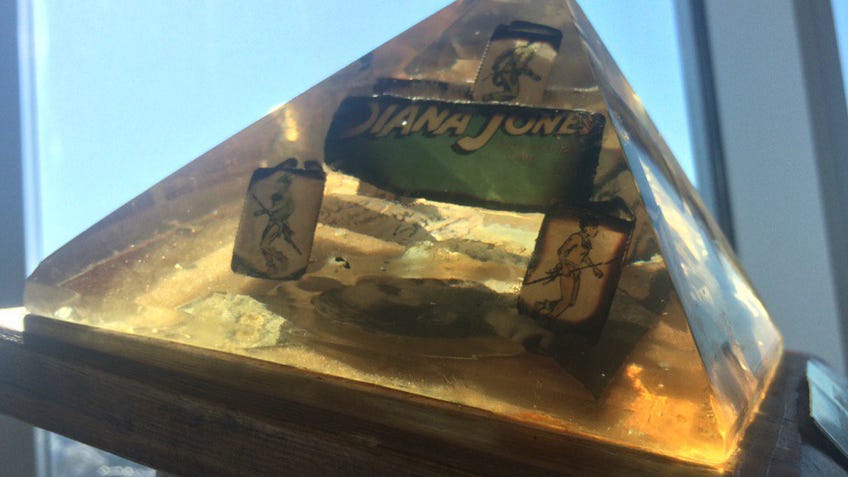Root creator Cole Wehrle, indigenous RPG Coyote & Crow among finalists for 2023 Diana Jones Award
The pyramid-shaped award for “excellence in gaming” also includes a journalist for the first time.
The shortlist of finalists for the 2023 Diana Jones Award for Excellence in Games has been published, and it once again displays a surprising breadth of picks from across the industry - and on the other side of the publisher-journalist divide, for once.
Five different individuals or projects have been nominated for this year’s award. The first is Coyote & Crow, a futuristic tabletop RPG created by Cherokee designer Connor Alexander that cuts the dead weight of colonialism from a far-future vision of indigenous science fiction storytelling.
Next is Journeys Through the Radiant Citadel, a Dungeons & Dragons sourcebook that was created by a massive team of 50 artists of colour across design, art, writing and layout. Containing thirteen adventures in a shared setting, the book enjoyed popular success and accolades for expanding the kind of content official D&D books serve their massive audience of players.
Rosenstrasse might be one of the most experimental entries on 2023’s nomination list - this freeform roleplay experience based on the very real protest in Nazi-controlled Germany in the months leading up to World War II and the implementation of the Final Solution. Centred on four pairs of men and women in relationships, Rosenstrasse uses the backdrop of impending history to explode the tension and strength of relationships as the whole world falls apart.
The first of the two individuals on the nominee list will be very familiar to longtime Dicebreaker readers. In fact, Cole Wehrle might be the most recognisable name in board games at the moment, thanks to the back-to-back success of games such as Root, Pax Pamir and John Company. The Diana Jones Company specifically points to his work with historical games at Wehrlegig, along with the prolific success of Leder Games, as the bona fides that landed him in their sights this year.
The last nominee is Lin Codega, a journalist at io9, alongside being a writer and designer in their own right, who garnered attention, praise and scorn in equal measure for their coverage of Wizards of the Coast’s OGL fiasco earlier this year. Codega’s consistent pressure on the giant publisher and investigative reporting as Wizards bumbled messaging and rollout of their future plans opened the door to public pressure that arguably led to D&D’s core rules being released into the Creative Commons.
Much like its (now missing-in-action) pyramidal trophy composed of burnt board game shards and resin, the Diana Jones Award has always been a little unorthodox. Instead of mirroring the list of “best [insert genre]” of other awards shows, the committee in charge of the annual honours instead shines the spotlight on underserved or overlooked parts of the tabletop industry and its associated communities.
Past years’ winners include Nigerian game designer and convention organiser Nibcard, Activist Ajit George, and - back in 2018 - the entire actual play movement. This doesn’t always play out, as the criticism of awarding the 2020 award to “Black Excellence in Gaming” shows. Ostensibly done in response to the murder of George Floyd at the hands of police and the national outcry in its wake, the gesture leery looks and outspoken disapproval from Black voices within the industry for siloing their voices into a single bucket.
More information about the Diana Jones Award, its selection process and the committee can be found on its official website. The winner will be announced in early August and would normally steward the goofy physical award for a year before mailing it off to their successor, but apparently the US postal service lost the award in transit. The committee is urging anyone with information on its whereabouts to help bring it home out of the cold.

